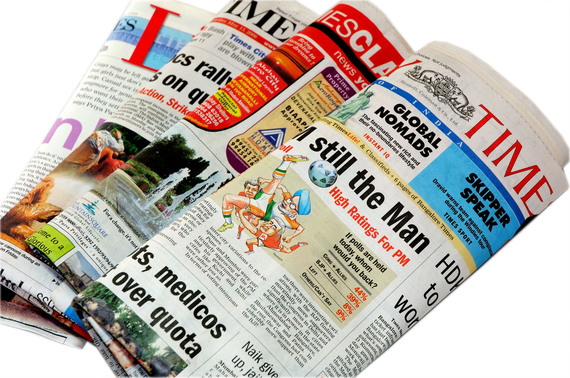We often hear journalists today pride themselves for abiding to high ethical standards and "excellence," which they think they maintain by upholding the norms of "objectivity." This is a big load of bullcrap.
First of all, objective journalism is as real as pokémons.
Second, when media focuses too much on trying too hard to appear impartial, it is actually doing this nation a huge disservice. Here is why.
Most stories are way too complicated than what the media tries to portray them to be, which is simply black or white. Left or right. Pro or anti. They have many, many, many perspectives. The debate on abortion is often boiled down to the pro or anti-life dichotomy, but that leaves out a lot of other valid, rational viewpoints.
What about the point of view of the woman who becomes pregnant due to an act of either rape or incest? What about the point of view of scientists who have a better sense of the significance of the new findings regarding the discourse? Aren't these important in helping decide on the national debate on the legalization of abortion?
And how about stories that have no valid other side? In the media's deluded desire to be seen as unbiased (and to accumulate ratings or views or to avoid offending a cohort), they present another side.
For example, the objective reality is that the use of contraceptives is not murder and is an essential part of the promotion of reproductive health and population management and that's a good thing. End of story. The sanctity of marriage is bullshit. End of story. Gay people exist and they have rights as human beings. End of story. Being an AlDub fan and social awareness are not mutually exclusive. End of story.
Yes, there will be ridiculous, irrational viewpoints based on the myths of their religious beliefs or attempt to intellectualize their subjective sentiments and judgments. But these are not informing the public!
A lot of newspapers, internet news sources and TV shows, in their effort to ensure impartiality, will get two people from the opposing sides to talk or publish their opinions. The first person from the left side will discuss what they believe in. The person from the right side will say what they believe in. And then the host clears their throat and says, "that's all the time we have." It won't matter if either of the two parties said something invalid. They won't be called out on their bullshit, because that might make the host seem "unfair".
The media thinks it is not in their job description to use their brains. So there are two sides of the story. But if any of these sides are obviously deploying lies, illogicality or other ways to deceive for their own interests, aren't journalists in the position to do something about it?
This desperate need by the media to present two sides has also been seen as a problem by author and columnist Arianna Huffington:
The problem with the media is not that they're veering to the left or to the right but that they have an addiction to presenting two sides to every issue, even when the truth lies on one side or the other. I'd much rather we make our preferences and points of view transparent than pretend we don't have them.
An article from The Economist talks of the same thing:
Journalists, who have to move fast, have neither the time nor the expertise to adjudicate disputes, so they default to a shoddy impersonation of objectivity in which it is pretended that there are two sides to the story, whatever the story might be, and that the argument of each side is of roughly equal credibility.
I'm sorry to burst your media bubble but credibility depends on honesty, not objectivity or impartiality.
Another dumb thing that journalists do is that they will treat anything that someone in a position or perceived authority will say as true. Whether his statement is accurate or not is deemed irrelevant. "Oh, you're the archbishop of Tralala in the province of Tír na nÓg? I guess you know what you're saying." Right?
The more famous someone's name is, regardless of their credentials, the more flexibility they get to stretch the truth in interviews. If you're a lesser known person, don't be surprised if they beat you up or if the interviewer considers your educated opinion of lesser value.
Indeed, the result of this lack of balls and too much ethics is all around us. It took this nation decades before we decided we need a reproductive health law. Until now, we are the only country in the world without a divorce law because of this Catholic BS called "sanctity of marriage." Filipino Catholics still believe flogging themselves red raw can actually save them from hell.
It's been said that "the quack, the charlatan, the jingo, and the terrorist can flourish only where the audience is deprived of independent access to information." But as we see today, we only need to delay public discourse by providing society with half-baked, inaccurate information to allow for these kinds of people to thrive.
All of a sudden, bias to the rational, scientific truth isn't looking so bad. What so wrong with taking sides anyway if it can set a vision and focus the energy of the nation towards a long term good?

